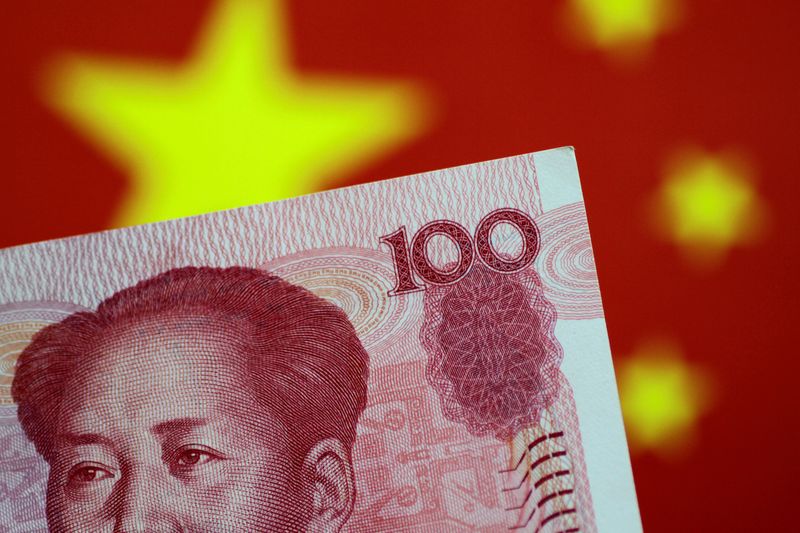By Selena Li and Alessandro Diviggiano
HONG KONG (Reuters) - Soaring demand from Chinese investors for offshore investments has left foreign banks and fund managers scrambling to ration outbound-investing quotas despite the recent selloff in the U.S. and Japanese markets.
To cope with the surging appetite, firms using China's Qualified Domestic Institutional Investor (QDII) programme are taking steps to get around the quota crunch, executives from a foreign bank, fund house, and wealth management units said.
China has approved a total of $167 billion QDII quotas as of end-July to 189 institutions with foreign firms each given $300 million to $4.7 billion. However, usage of the quotas is not publicly available.
Demand for QDII products - which allow mainland Chinese investors to buy overseas stocks, bonds, funds and structured products - is rising in the latest sign of investors' lack of confidence in local assets.
Turnover on Monday of domestic A-shares hit the lowest level since May 2020, with only 496 billion yuan ($69 billion) in volume traded in the session.
The steps to overcome quota limits underscore the challenges for foreign financial firms to fully leverage their global network and product suites in competition with peers in China, said Jia Zhi, head of fund of funds, asset management at Hualin Securities.
BlackRock (NYSE:BLK), JPMorgan and Goldman Sachs in recent years set up businesses in mainland China or boosted ownership of local units.
"We have not experienced quotas running out before and have no reaction plan," a banking manager at an Asia-headquartered lender said.
With demand building up in recent months, his firm has now introduced measures, such as assigning quotas between branches, to avoid hitting the upper caps.
An executive from a U.S. fund house in China said his company had in recent months tried dropping institutional clients to free up quotas for new flows from investors investing in retail funds, which earn greater fees.
Companies are resorting to subscription caps, but those are only a temporary solution until expanded quotas become available, said Nicholas Omondi, director at consultancy Z-Ben Advisors. China's foreign exchange regulator doesn't grant new quotas regularly.
A senior executive at a foreign bank wealth management company said bank wealth units with little quotas left are introducing swap structures with their parent companies offshore to circumvent the limits in a growing lucrative business.
With those swaps, monthly new flows into offshore-investing products could reach 1 billion yuan at one bank wealth unit, the executive added.
All foreign firm executives declined to be named as they are not authorised to speak to media.
UNFETTERED DEMAND
The quota squeeze has intensified as Chinese investors crave higher returns offshore, faced with the sluggish performance of local assets in a weak economy hurt by a prolonged property downturn.
A major sell off of U.S. and Japanese stocks last week freed up some quotas as valuations dropped and some investors redeemed some of their funds, Hualin's Jia said.
"But in the long run quotas are limited and will be filled up quickly," he added.
The price levels of some QDII funds have now rebounded, reinforcing investors' views on holding, Z-ben's Omondi said.
The foreign bank manager said several investors had visited the bank's branches, demanding face-to-face meetings to secure QDII quotas.
"The question is, after the selloff, whether investors still want to explore global instruments besides onshore market," the banker said.
"And the answer is clear now - QDII is a must when people worry about onshore."

($1 = 7.1744 Chinese yuan renminbi)
($1 = 7.1751 Chinese yuan renminbi)